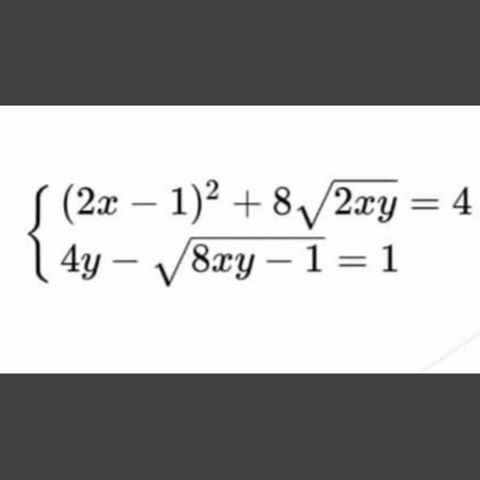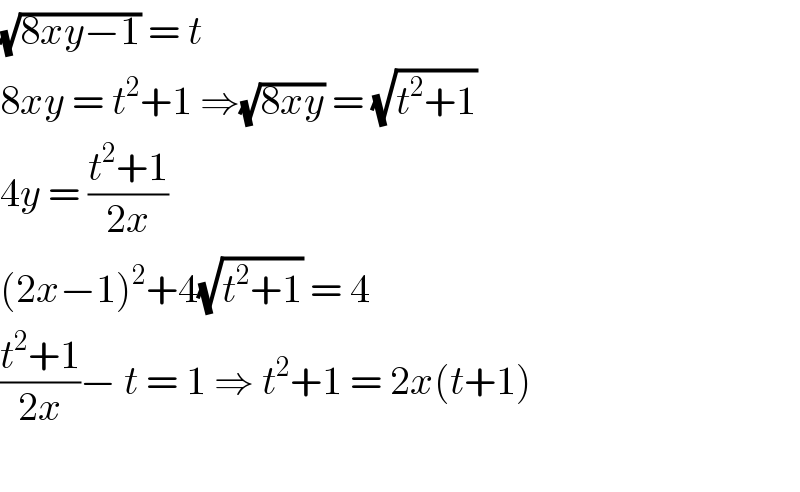Question Number 89187 by TawaTawa1 last updated on 16/Apr/20

Commented by jagoll last updated on 16/Apr/20

$$\sqrt{\mathrm{8}{xy}−\mathrm{1}}\:=\:{t}\: \\ $$$$\mathrm{8}{xy}\:=\:{t}^{\mathrm{2}} +\mathrm{1}\:\Rightarrow\sqrt{\mathrm{8}{xy}}\:=\:\sqrt{{t}^{\mathrm{2}} +\mathrm{1}} \\ $$$$\mathrm{4}{y}\:=\:\frac{{t}^{\mathrm{2}} +\mathrm{1}}{\mathrm{2}{x}}\: \\ $$$$\left(\mathrm{2}{x}−\mathrm{1}\right)^{\mathrm{2}} +\mathrm{4}\sqrt{{t}^{\mathrm{2}} +\mathrm{1}}\:=\:\mathrm{4} \\ $$$$\frac{{t}^{\mathrm{2}} +\mathrm{1}}{\mathrm{2}{x}}−\:{t}\:=\:\mathrm{1}\:\Rightarrow\:{t}^{\mathrm{2}} +\mathrm{1}\:=\:\mathrm{2}{x}\left({t}+\mathrm{1}\right) \\ $$$$ \\ $$
Commented by jagoll last updated on 16/Apr/20

$$\mathrm{4}\sqrt{{t}^{\mathrm{2}} +\mathrm{1}}\:=\:\mathrm{4}−\left(\mathrm{2}{x}−\mathrm{1}\right)^{\mathrm{2}} \\ $$$$\mathrm{16}\left({t}^{\mathrm{2}} +\mathrm{1}\right)\:=\:\left\{\mathrm{4}−\left(\mathrm{2}{x}−\mathrm{1}\right)^{\mathrm{2}} \right\}^{\mathrm{2}} \\ $$
